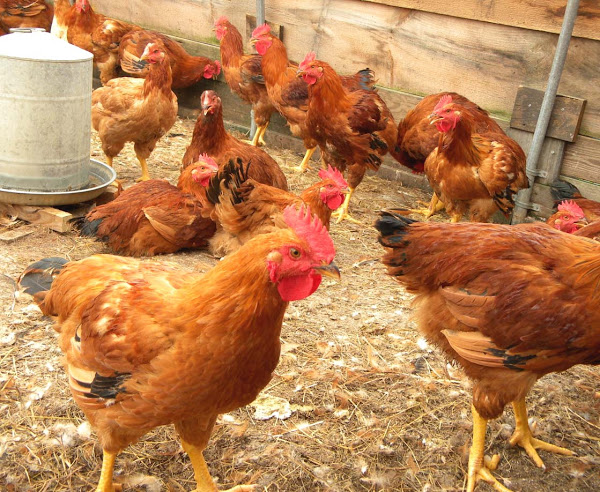The recent increase in the cost of poultry feed in the country has been forcing farmers to ration food for their chickens. Findings have shown that th
The recent increase in the cost of poultry feed in the country has been forcing farmers to ration food for their chickens. Findings have shown that the cost of ingredients for the composition of poultry feeds, particularly maize, has increased by 100 per cent.
For instance, a 100kg bag of maize, which used to cost about N6, 000 in April 2016, is now being sold for about N12, 000. Also, the cost of fish meal, another important ingredient in poultry feeds, has increased by 60 per cent. A kilogramme of fish meal that used to sell for N500 now costs about N800. However, the price of egg in the market has not enjoyed similar increase.
Before the hike in the cost of poultry feed ingredients, a crate of eggs used to sell for N600. It is now being sold for between N650 and N700, depending on the egg size. This development has led farmers to be rationing food for their chickens or mixing their feeds with lesser nutritious ingredients. This has consequently led to a drop in egg production as malnourished chickens do not produce eggs maximally.
Findings also showed that the high cost of maize was due to low cultivation as a result of the activities of Boko Haram insurgents in the north, recurring attacks by Fulani herdsmen and flooding. This situation was confirmed in the 2016 Maize Outlook by a consulting firm, Novus Agro Nigeria Limited. According to the outlook, the price of maize hit N65, 000 per metric tonne in January 2016, up from around N45, 000 in October 2015 and has been on steady rise since then.
The Director-General of the Poultry Association of Nigeria, Mr. Onallo Akpa, said the poultry industry in the country was in crisis. He said, “Last year, Nigeria produced over 14 billion table eggs and was recognised as the number one egg producer in Africa. But we have not been able to calculate the production figure in the last one year because of the crisis we are going through. But surely, our egg production figure has dropped. The industry is being threatened now due to high cost of poultry feeds.
Akpa also said the problem arose as a result of neglect of the agricultural sector and the non-supply of inputs like fertiliser to the “few” farmers in the country. He said, “Maize was being bought between N4, 500 and N5, 000 per 100kg bag in October/November 2015. But now, it is about N12, 000. Now there is pressure on maize by the poultry industry which consumes over 2.5 million metric tonnes annually. The breweries and other industries also compete with us.”
The Chairman of Dedora Nigeria Limited, Lagos, Mr. Emmanuel Omokwale, said his farm had been recording loss every day. He lamented that before, his farm used to produce 300,000 crates of eggs per day, but could hardly produce 1,000 crates now because of the rise in the prices of raw materials.
He said, “The prices of raw materials keep on increasing every day. Maize is a major example. I have been in this business for over 25 years, I have not bought maize above N80, 000 per tonne. But the price is now N180, 000 per tonne. With the way it is going, only God knows when it will end.
“Other problem is non-availability of vitamins and others which are used to produce amino acid to enrich poultry feed. All these things are not produced in Nigeria. Maize and soya beans are locally produced, but soya beans are sometimes imported into the country. The foreign exchange crisis has compounded the non-availability of vitamins.”
Omokwale added that the foreign exchange crisis, increase in fuel price and high interest rate have also contributed to the problem the poultry industry is facing.
“We are not breaking even because we cannot meet the cost of feeding the chickens. In my farm, I provide water, electricity, labour and security. For instance, I buy diesel at N200 per litre and I use a minimum of 200 litres of diesel per day, that is, N40,000 on diesel alone daily,” he said.
Omokwale added that these problems had led to a sharp decline in the production of eggs on his farm. He said, “We can’t meet demand for eggs because we don’t have enough chickens. We don’t have the capacity to stock now. The problem is that the more we produce, the more we lose. We cannot just expand because to feed the birds alone is difficult.
“Some poultry farms ration the feeding of their birds. But the problem with that is that if you adopt that method, you will be worse off. That is why you have to cut down your stock. It is too expensive to stock now. Everybody will soon see the effect of what is happening now in the country.”
Findings shows that many poultry farmers are moving out of the business as it has become difficult to sustain their farms under the current circumstances.


